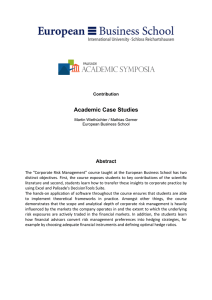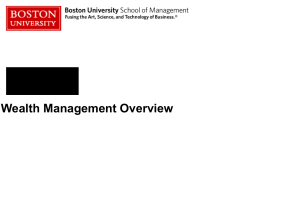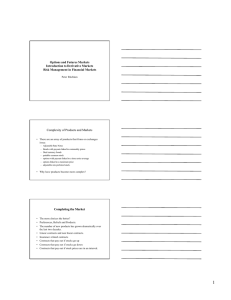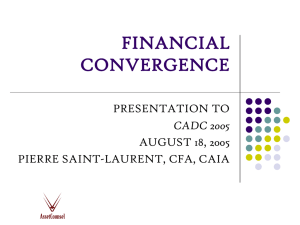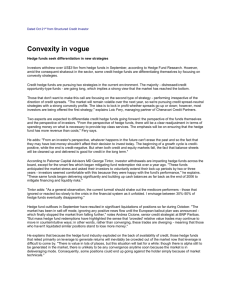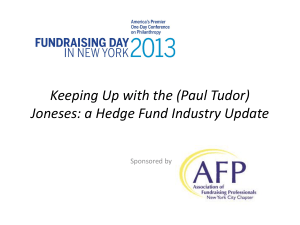Study: Hedge funds’ role in 2008 market drawdown “questionable” |...
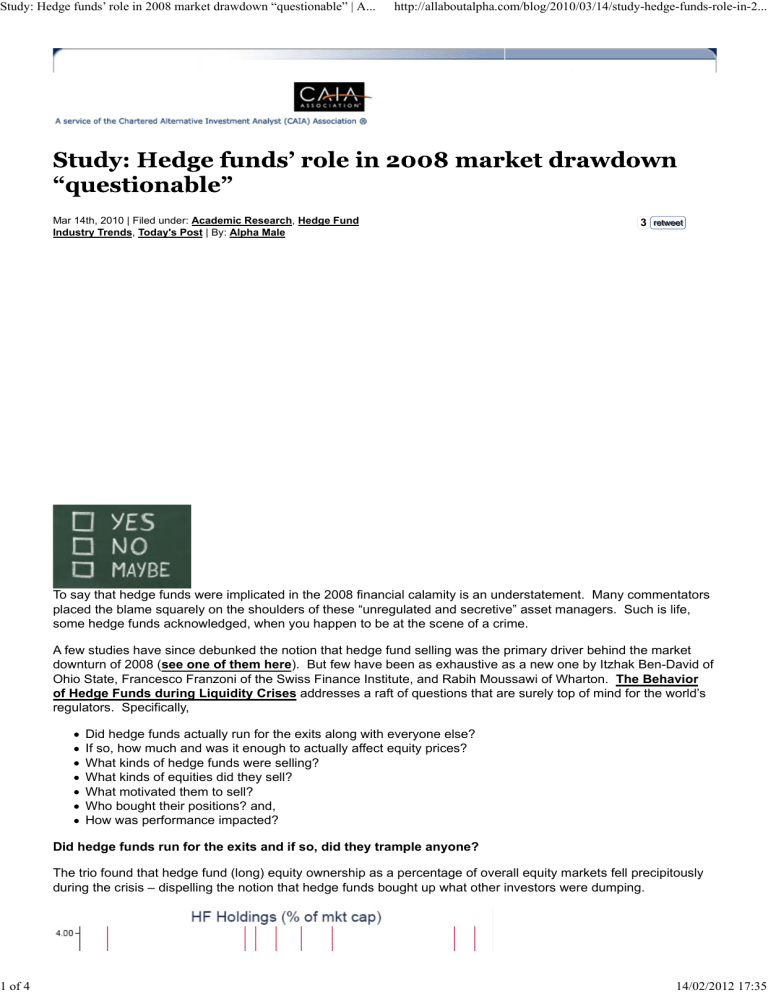
Study: Hedge funds’ role in 2008 market drawdown “questionable” | A...
http://allaboutalpha.com/blog/2010/03/14/study-hedge-funds-role-in-2...
Mar 14th, 2010 | Filed under: Academic Research , Hedge Fund
Industry Trends , Today's Post | By: Alpha Male
3 retweet
1 of 4
To say that hedge funds were implicated in the 2008 financial calamity is an understatement. Many commentators placed the blame squarely on the shoulders of these “unregulated and secretive” asset managers. Such is life, some hedge funds acknowledged, when you happen to be at the scene of a crime.
A few studies have since debunked the notion that hedge fund selling was the primary driver behind the market downturn of 2008 ( see one of them here ). But few have been as exhaustive as a new one by Itzhak Ben-David of
Ohio State, Francesco Franzoni of the Swiss Finance Institute, and Rabih Moussawi of Wharton. The Behavior of Hedge Funds during Liquidity Crises addresses a raft of questions that are surely top of mind for the world’s regulators. Specifically,
Did hedge funds actually run for the exits along with everyone else?
If so, how much and was it enough to actually affect equity prices?
What kinds of hedge funds were selling?
What kinds of equities did they sell?
What motivated them to sell?
Who bought their positions? and,
How was performance impacted?
Did hedge funds run for the exits and if so, did they trample anyone?
The trio found that hedge fund (long) equity ownership as a percentage of overall equity markets fell precipitously during the crisis – dispelling the notion that hedge funds bought up what other investors were dumping.
14/02/2012 17:35
Study: Hedge funds’ role in 2008 market drawdown “questionable” | A...
http://allaboutalpha.com/blog/2010/03/14/study-hedge-funds-role-in-2...
Some might point out that a drop in long positions might be accompanied by an off-setting drop in short positions.
By covering shorts, hedge funds would be buying , not selling . But the trio finds that overall short interest didn’t seem to move nearly as much as longs – suggesting that the net effect of hedge funds reducing gross exposure was to amplify the market drawdown.
2 of 4
What kinds of hedge funds ran fastest?
It appears as though a sub-set of the biggest hedge funds was mainly to blame for the selling. These funds were first to the exit door, while many other hedge funds filed out in a relatively calm and orderly manner. The chart below from the paper shows the typical increase or decrease of equity allocations in a one month period. As you might guess the typical distribution has a mean of around zero. But during the 2008 crisis, the mean dropped significantly. In fact, the number of funds that dumped more than 70% of their equity holdings in Q3 and Q4 2008 rose by over 10-fold.
14/02/2012 17:35
Study: Hedge funds’ role in 2008 market drawdown “questionable” | A...
http://allaboutalpha.com/blog/2010/03/14/study-hedge-funds-role-in-2...
3 of 4
Apart from a concentration of selling among the biggest sellers, there were a few other interesting trends according to the study. Event-driven, fixed income arb, global macro, and managed futures reduced their equity holdings the most. Meanwhile, market neutral strategies actually increased their equity holdings.
What did they sell?
The paper shows that these panicked hedge fund managers tended to dump high volatility stocks during the calamity. While this may seem like a no-brainer, note that hedge funds tended not to dump high vol stocks during times of overall market volatility (high VIX), but apparently only when liquidity dried up as it did at the end of 2008.
Why did they sell?
It’s easy to blame fund managers for simply being nervous nellies and wanting to retreat to cash when the global markets started to fall out of bed. But hedge fund investors and prime brokerages apparently deserve some of the blame.
Regular readers may recall a paper by John Dai and Suresh Sundaresan of Capula Investment Management that explicitly modeled investors’ “redemption” option and lenders’ “funding” option. Ben-David, Franzoni, and
Moussawi’s calculations suggest that around half of the hedge fund selling in the second half of 2008 was precipitated by the exercising of these two options (in roughly equal proportions).
Who bought their positions?
Okay. So if hedge funds were net sellers during the downdraft, then who actually provided the much-heralded liquidity? This question is apparently a bit tougher to answer. The paper suggests that company management and retail investors may have filled the void, but this conclusion is not statistically significant.
How was performance impacted?
However, it seems that hedge funds that ran for the exits did better than those that did not. This may be because the cash generated from equity sales was immediately redeployed in other asset classes. Write the authors,
“Overall, we view these results as additional support to the hypothesis that multi-asset hedge funds that are familiar with alternative markets (e.g., global macro and futures hedge funds) reallocate equity sales proceeds to those other markets as investment opportunities arise.”
Bottom Line?
Those hoping to pin the blame for 2008 on hedge funds will have to keep looking. As Ben-David, Franzoni and
Moussawi point out…
“The magnitude of the effect [of hedge fund sales] is large: during the worst liquidity crisis in our sample, the crisis of 2008, hedge funds reduce their positions by 18% per quarter, over two quarters. The economic magnitude is smaller when computed as a fraction of market capitalization (about 0.5% per quarter). Although these declines in holdings are material, it is not clear whether they could cause a market-wide liquidity dry-up, at least in the equity market at large.”
14/02/2012 17:35
Study: Hedge funds’ role in 2008 market drawdown “questionable” | A...
http://allaboutalpha.com/blog/2010/03/14/study-hedge-funds-role-in-2...
Email This Post
Print This Post
Related Posts
1.
2.
3.
4.
5.
Study is first to examine the secondary market for stakes in hedge funds
Sociology explains changing role of funds of funds
Bear market funds seen as “win-win” for investors and managers
Market neutral funds found to be (relatively) immune when liquidity dries up
Academic study examines why some hedge funds appear to be fudging valuations
Leave Comment
4 of 4 14/02/2012 17:35
